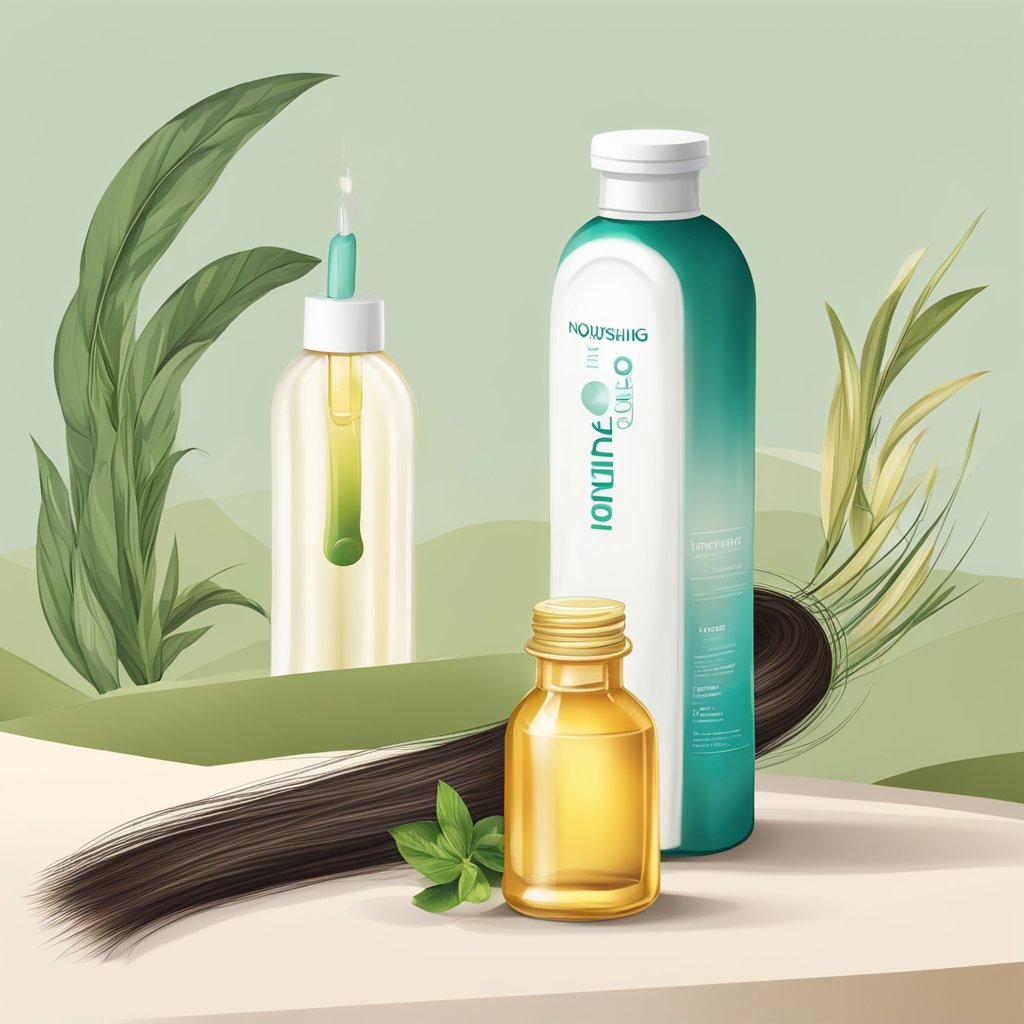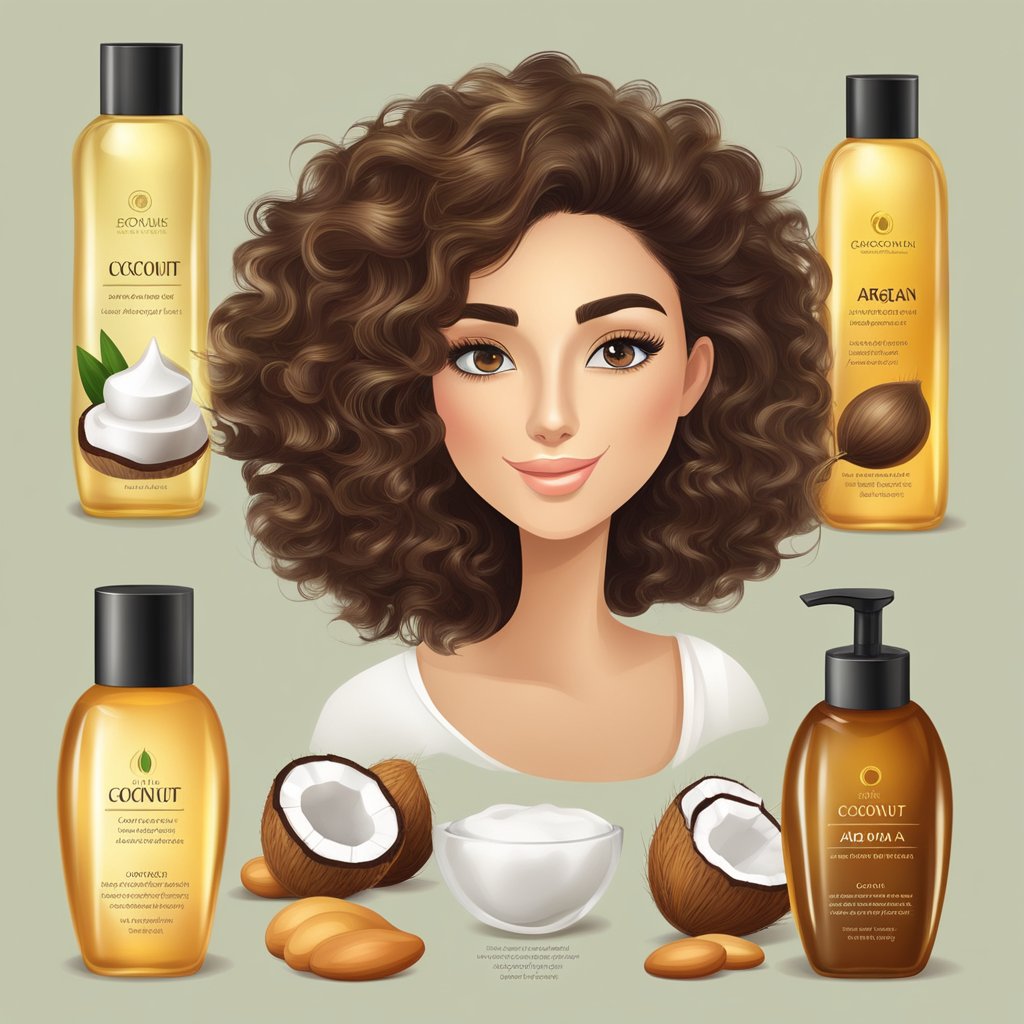Maintaining the health and appearance of hair involves various practices, and one important aspect is caring for the ends of the hair. The ends are the oldest and often the most damaged part of the hair, making them prone to splitting and breakage. To combat these issues and promote healthy hair, I’ve found that using specific oils on the ends can be highly beneficial. These oils are specially formulated or selected to seal in moisture, reduce frizz, and add shine, which can all contribute to stronger and more vibrant hair.

While many oils available in the market claim to be beneficial for hair health, only a select few truly stand out when it comes to effectively treating the ends. It is important to choose oils that match one’s hair type since what works for one person may not necessarily be the best choice for another. With the right knowledge and application, these oils can not only protect and repair hair ends but also enhance the overall health and appearance of the hair. My experience has shown that, whether the hair is naturally dry, oily, or somewhere in between, there’s an oil well-suited for everyone’s needs.
Key Takeaways
- Using the right hair oil can protect and repair hair ends, enhance shine, and preserve moisture.
- Selecting an oil that matches your hair type is crucial for gaining the full benefits of the product.
- Proper application of hair oil is key to promoting healthy and vibrant hair.
Identifying the Right Oils for Your Hair Type

Choosing the correct hair oil is crucial for maintaining healthy hair ends and it depends on your individual hair type. I’ll guide you through the options.
Oils for Dry and Damaged Hair
For dry and damaged hair, moisture is key. Argan oil is excellent due to its high content of vitamin E and antioxidants. I find that coconut oil penetrates deeply into hair shafts, providing intense hydration and repairing split ends.
- Argan oil: Nourishes and revitalizes
- Coconut oil: Deeply moisturizes and repairs
Oils for Oily Hair
Oily hair requires lightweight oils that won’t weigh it down. Jojoba oil closely resembles the scalp’s natural sebum, making it my go-to oil as it balances oil production. Grapeseed oil is another perfect option due to its light texture and ability to regulate natural oils.
- Jojoba oil: Balances scalp’s sebum
- Grapeseed oil: Light and regulates oils
Oils for Curly and Coarse Hair
Curly and coarse hair textures thrive with heavier, more nourishing oils. Castor oil promotes growth and adds definition to curls. Avocado oil, saturated with fatty acids, is ideal for strength and enhancement of the hair’s natural texture.
- Castor oil: Promotes growth, adds definition
- Avocado oil: Strengthens, enhances texture
Oils for Fine and Thin Hair
Fine and thin hair benefits from oils that won’t overwhelm it. Sweet almond oil is my preferred choice as it’s light and helps to strengthen delicate strands. Rosemary essential oil, used sparingly, can encourage hair growth without adding greasiness.
- Sweet almond oil: Lightweight and strengthening
- Rosemary essential oil: Stimulates growth, must be diluted
Key Benefits of Hair Oils
Choosing the right hair oils can notably improve your hair’s health and appearance. Here, I cover how they can moisturize, strengthen, and enhance the overall look of your hair.
Moisturizing Properties
Hair oils are pivotal in maintaining the necessary moisture levels in your hair. When I apply oils rich in fatty acids, such as coconut or olive oil, they penetrate the hair shaft and seal in moisture, preventing it from evaporating. This helps to maintain proper hydration, which is essential for soft and pliable hair strands.
Strengthening and Hair Growth
Oils can also contribute significantly to hair strength and growth. For instance, castor oil, which is high in ricinoleic acid, supports the scalp’s health, promoting better hair growth. I’ve noticed that consistent use of certain oils can even reduce hair breakage and loss by reinforcing the hair’s keratin structure, making it stronger.
Enhancing Shine and Reducing Frizz
Lastly, hair oils can vastly enhance the shine and manage frizz. Argan oil, often referred to as ‘liquid gold’, is particularly effective at imparting a lustrous shine and taming frizz. When I regularly apply hair oil, it smooths down the hair cuticle, reflecting light to give a glossy finish and diminished frizz.
Best Practices for Applying Hair Oils
When it comes to using hair oils effectively, I’ve learned that timing and technique are crucial. Whether you’re looking to nourish your hair before a wash, add some sheen after shampooing, or maintain healthy tips daily, there are specific ways to apply hair oils. Let’s explore how to optimize the use of oils at different stages of hair care.
Pre-Shampoo Treatment
Before shampooing, I often apply oils to protect my hair during the wash process. This treatment can help in detangling and minimizing damage.
- Type of Oil: Heavier oils like coconut or olive oil
- Method: Focus on the ends and massage up to the scalp.
- Duration: Leave it on for at least 30 minutes or overnight.
- Extra Tip: Comb through gently to detangle before shampooing.
Post-Wash Styling
After washing and conditioning my hair, I turn to lighter oils to style and add shine.
- Type of Oil: Lightweight oils like argan or jojoba.
- Amount: 1-2 drops, warm between palms.
- Application: Apply from mid-length to ends to avoid greasiness at the roots.
- Benefit: A serum or leave-in conditioner with oil can add moisture and facilitate styling.
Regular Maintenance
For daily upkeep, to keep my ends moisturized and to prevent split ends, a small amount of the right oil is effective.
- Frequency: Daily or every other day, depending on hair type.
- Application: Focusing on the ends, apply a tiny amount of oil.
- Tip: Do not overdo it; too much oil can attract dirt and require more frequent washing.
In these ways, hair oils, applied with care, can be an essential part of maintaining healthy, strong, and shiny hair.
Top Hair Oil Products and Natural Ingredients
In my experience, the right hair oil can transform the look and feel of your hair’s ends. I’ve found that premium blends offer indulgence, while budget-friendly and natural options ensure everyone has access to healthy hair.
Premium Oil Blinds
High-end hair oils, like Ouai Hair Oil and Olaplex No.7 Bonding Oil, typically feature a complex mixture of nourishing oils. These products are formulated to both treat and protect your hair, offering a sleek finish without heaviness. Ouai’s Hair Oil is known for its ability to tame frizz and impart a glossy shine, while Olaplex’s No.7 Bonding Oil not only moisturizes but also repairs hair bonds with its patented formula.
Budget-Friendly Options
Affordable oils like OGX Extra Strength Renewing + Argan Oil can be just as effective without breaking the bank. Products in this category may not have the same concentration of rare oils, but they often include powerful ingredients such as argan oil, which is excellent for split ends and dry hair.
Natural and Organic Oils
For those who prefer a purely organic approach, single-ingredient oils such as jojoba oil, coconut oil, and castor oil are ideal. Jojoba oil is structurally similar to hair’s natural oil, deeply hydrating without leaving a residue. Coconut oil has been used for centuries to protect and strengthen hair, penetrating deep into the follicle. Castor oil is renowned for its hair growth properties, and its rich texture is excellent for sealing moisture into the hair ends.
By selecting the appropriate oil for your hair type and concerns, you can ensure the ends of your hair remain healthy and well-maintained.
Frequently Asked Questions
In this section, I’ll address common inquiries about the best hair oils for improving the health and appearance of your hair ends.
What are the top hair oils for reducing frizz and increasing manageability?
I’ve found that argan oil, jojoba oil, and sweet almond oil are highly effective for taming frizz and enhancing the manageability of hair. Their light texture allows for smooth application without weighing hair down.
Which natural oils are recommended for promoting hair growth and thickness?
Castor oil is widely recommended for its potential to promote hair growth and increase thickness due to its ricinoleic acid content. Peppermint oil, when diluted with a carrier oil such as grapeseed, can stimulate the scalp and potentially encourage hair growth.
How can argan oil benefit the hair, especially the ends?
Argan oil is rich in antioxidants and vitamin E, which can nourish hair, improve elasticity, and prevent split ends. A few drops warmed between the hands and applied to the ends can make a noticeable difference.
Are there any benefits of using coconut oil on hair, and how should it be applied?
Coconut oil is known for its deep conditioning properties. It can be used as a pre-wash treatment, applied from the mid-lengths to ends, and left in for at least 30 minutes before shampooing for optimal hydration.
Can essential oils be safely applied to hair ends, and what are the best practices?
Essential oils should always be diluted with a carrier oil like jojoba or sweet almond before application to prevent irritation. Lavender and rosemary oils are great choices for a soothing scalp massage and can benefit the ends when used sparingly.
Is olive oil effective for conditioning the ends of hair, and what results can be expected?
Olive oil is a heavy-duty moisturizer that can deeply condition dry and brittle ends. When used in moderation, I’ve noticed it leaves hair ends more supple and less prone to breakage.